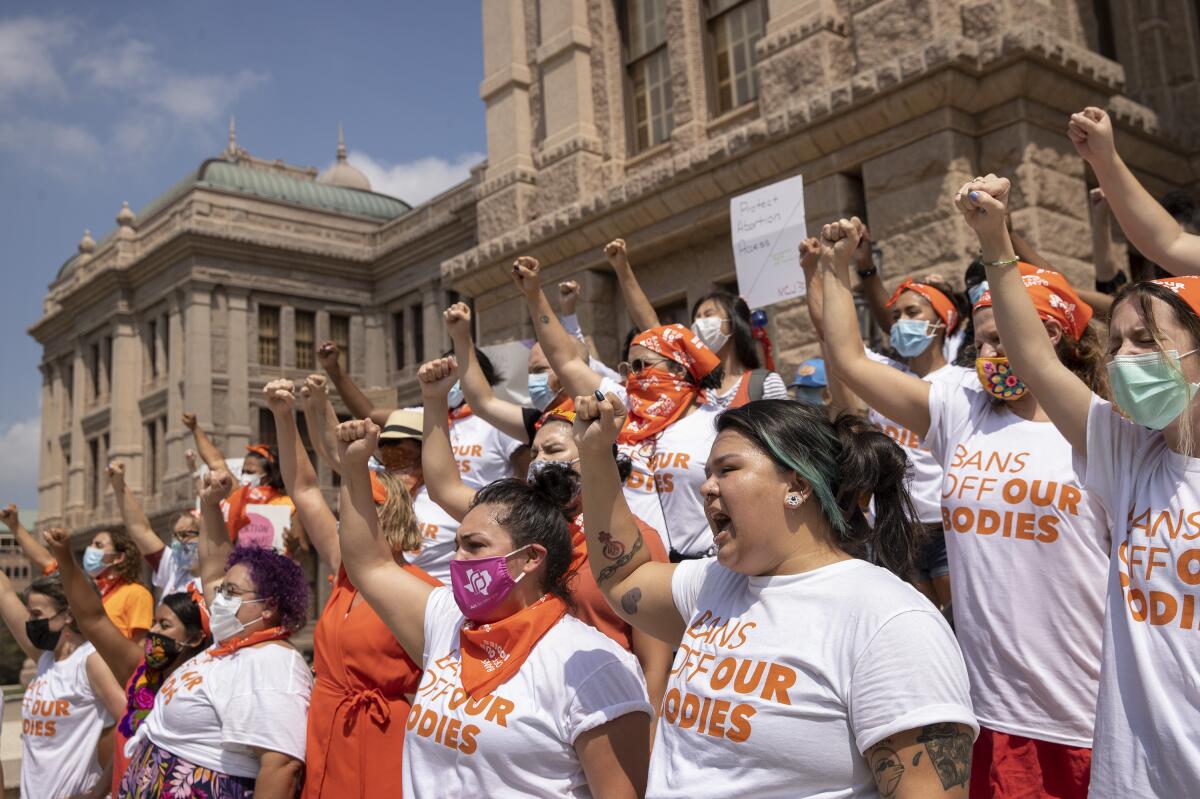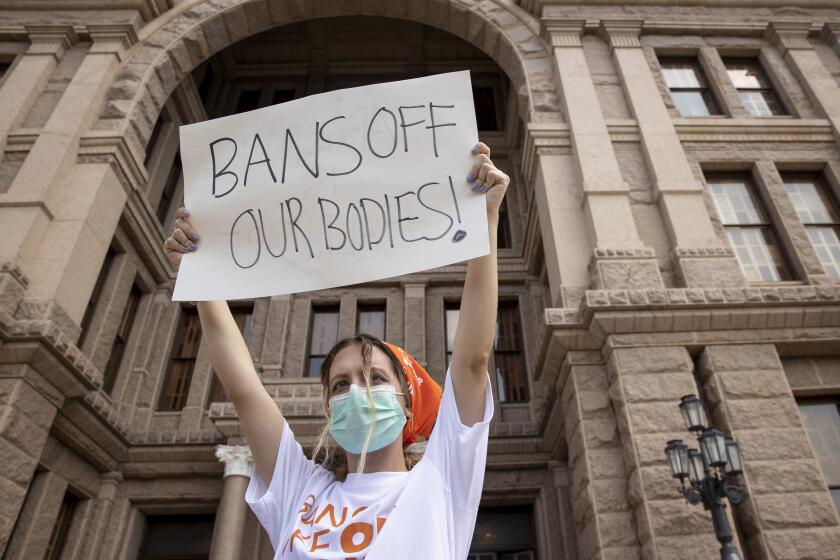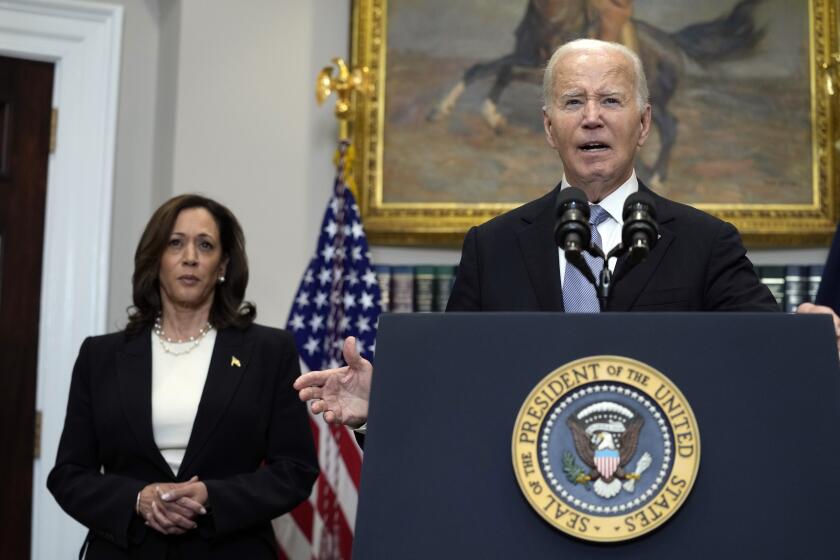Editorial: The Supreme Court isn’t buying the Texas abortion law. Let’s hope they block it

Texas officials essentially and unconstitutionally banned abortion by way of a bizarre state law, and it sounds like the Supreme Court isn’t buying into the state’s scheme.
On Monday, justices heard nearly three hours of oral arguments in two cases brought by the U.S. Department of Justice and by a group of abortion providers challenging the Texas law. The state has banned abortion at six weeks of gestation — but the law is enforced only by private citizen lawsuits. This diabolical tactic is designed to render federal courts powerless to block the law.
Of course it’s a bad idea — and possibly bad karma — to predict what the Supreme Court will decide in any case. But even as justices intently questioned lawyers about whether a state law enforced only through private citizens suing in Texas state courts can be stopped by a federal court or the U.S. Department of Justice, a majority of the justices seemed troubled by the chilling effect that the law has on abortion providers even going to court to defend themselves. And, in turn, that has terrified abortion providers so much that, for the most part, no abortions are taking place in Texas.
Under the law, known as Senate Bill 8, an individual who helps a woman obtain an abortion — the doctor, the nurse, the ride share driver who took her to the clinic — can be sued in court by any Tom, Dick or Harry. If the person who gets sued loses, he or she pays legal fees for the other side. And win or lose, that person can be sued again and again by someone else for the exact same instance of helping a woman get an abortion. The law, in effect since Sept. 1, has effectively halted abortions in the state.
The Supreme Court must recognize that the Texas abortion restriction is unconstitutional and reaffirm its own legitimacy.
“You know, usually in these chilling-effect cases we’re kind of guessing,” said Justice Elena Kagan. “But, here, we’re not guessing. We know exactly what has happened as a result of this law. It has chilled everybody on the ground.”
Justice Brett M. Kavanaugh, one of the court’s conservatives, questioned the Texas solicitor general about the law’s retroactive provision that says that even if the law was temporarily blocked, and providers began performing abortions again, the state would allow suits that could retroactively impose liability for abortions carried out during that period.
“Does that play into the chilling-effect argument that was being raised?” asked Kavanaugh. “... You’re chilled by the prospect of future changes and then someone reaching back and imposing millions and millions of dollars ... even though the activity was perfectly lawful under all court orders and precedent at the time it was undertaken, right?”
Some of the justices seemed to be having a harder time wrapping their minds around allowing the U.S. government to sue the state of Texas.
U.S. Solicitor Gen. Elizabeth Prelogar tried to assuage their concern: “The United States does not lightly invoke an authority like this to sue a state. The reason we’ve done it here is because SB 8 is so unprecedented, extraordinary, and extraordinarily dangerous for our constitutional structure.” If Texas can nullify the court’s precedent on abortion, she added, “then no constitutional right is safe. And we think that in this extraordinary circumstance, the United States has a sovereign interest in intervening to protect the supremacy of federal law.”
It’s great that a U.S. District Court Judge temporarily blocked the Texas abortion ban, but the battle to get it struck down is just beginning.
The Supreme Court should grant the requests, block the law and send a powerful statement that the court will not let Texas or any other state trample on individuals’ constitutional rights.
The most disturbing thing about the cases against Texas and another case concerning a Mississippi abortion restriction — which the court will hear next month — is just how precarious the situation is for abortion rights in the U.S. The Supreme Court guaranteed women the right to an abortion in its landmark Roe vs. Wade decision. Nearly 50 years after that decision, abortion rights advocates are back at the Supreme Court still fighting for it. A decade ago that would have been inconceivable.
The Supreme Court should make this decision quickly. It’s been 63 days since SB 8 took effect. It’s past time to restore to Texas women their right to a safe and legal abortion.
More to Read
A cure for the common opinion
Get thought-provoking perspectives with our weekly newsletter.
You may occasionally receive promotional content from the Los Angeles Times.







